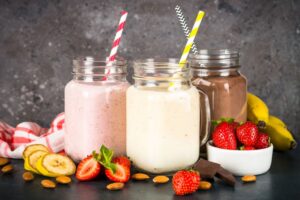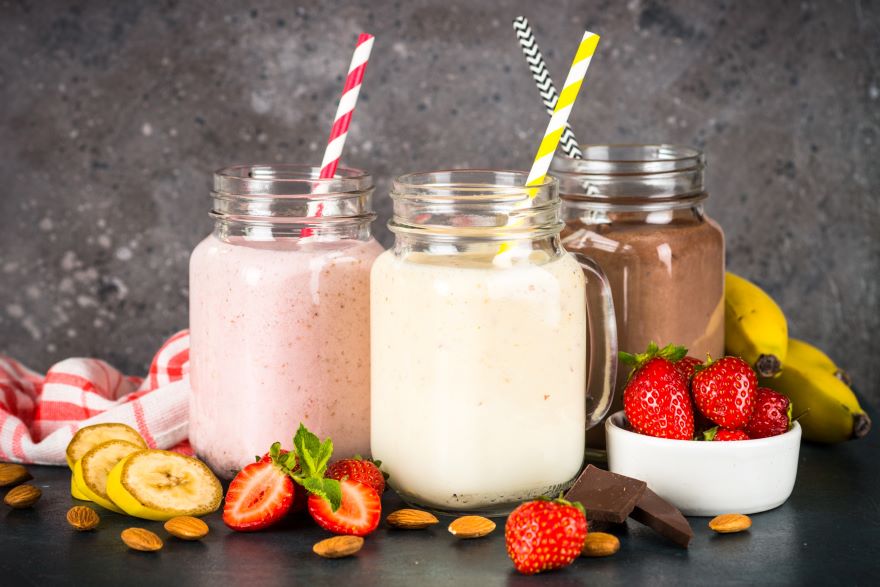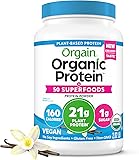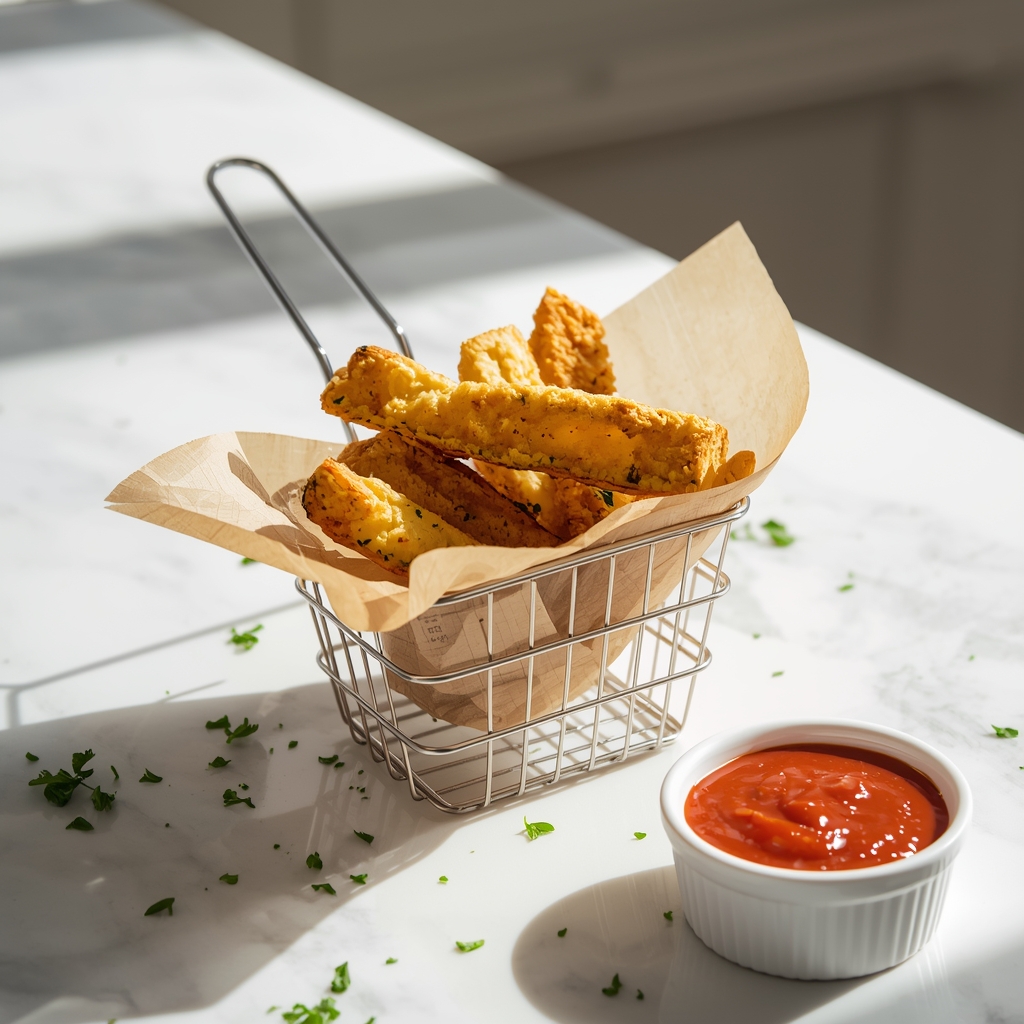Protein shakes are an integral part of many fitness enthusiasts’ diets, providing essential nutrients that support muscle growth, recovery, and overall health. As dietary preferences evolve and incidences of lactose intolerance increase, dairy-free protein shakes have gained popularity. We craft these shakes from various plant-based sources such as soy, pea, hemp, and rice proteins, offering a viable alternative to traditional whey-based shakes. They can be equally nutritious and beneficial for those looking to maintain a balanced vegan or lactose-free diet.

Choosing dairy-free protein shakes provides numerous benefits, ensuring that nutritional needs are met without compromising dietary restrictions or personal values. They often come enriched with vitamins and minerals to augment their nutritional profile. With a multitude of flavors and formulations, these shakes cater to a wide array of tastes and nutritional requirements, making them a convenient choice for individuals with busy lifestyles or those seeking plant-based nutrition solutions.
Key Takeaways
- Dairy-free shakes provide essential protein without lactose.
- They offer health benefits and cater to varied dietary needs.
- Plant-based options come in numerous flavors and nutrients.
Benefits Of Dairy-Free Protein Shakes

Dairy-free protein shakes offer a range of adaptabilities for nutrition, weight management, and addressing dietary restrictions. Here, I’ll guide you through their primary benefits.
Nutritional Advantages
Dairy-free protein shakes typically harness the power of plant-based proteins like pea, chia seeds, and hemp. These vegan shakes are rich in essential nutrients, offering a variety of vitamins and minerals. For instance, some shakes may include a mix of 22 vitamins and minerals that are foundational for a well-rounded diet, complemented by antioxidants sourced from fruits and vegetables.
Muscle Growth And Repair
For muscle synthesis, protein content is crucial, and these shakes often provide high levels of clean, plant-based protein that aids in muscle growth and repair. I might choose a shake with about 16 grams of organic plant-based protein per serving—ideal for post-workout recovery.
Weight Management
When aiming for weight loss or management, dairy-free shakes can be an effective, low-calorie meal replacement or snack. They are typically lower in sugar and calories – a shake might have around 220 calories per serving – which helps me avoid excessive calorie intake through mindful consumption.
Lactose Intolerance And Allergies
Dairy-free protein shakes serve as an excellent alternative for those like me who experience lactose intolerance or dairy allergies. They’re inherently lactose-free, reducing the risk of digestive discomfort and providing a safe source of protein for individuals with dairy-related sensitivities.
Exploring Different Protein Sources
In dairy-free protein shakes, it’s crucial to understand the variety of protein sources available that cater to different dietary needs and preferences.
Plant-Based Proteins
I consider plant-based proteins a cornerstone of dairy-free shakes. Peas, brown rice, pumpkin seeds, and hemp form easily digestible proteins for those with lactose intolerance or milk allergies. Specifically, pea protein is a popular choice in vegan protein powders as it offers a significant amount of amino acids essential for muscle repair and growth.
Vegan Protein Powders
The market for vegan protein powders encompasses a range of types, including pea, soy, hemp, and brown rice proteins. Each has a unique nutritional profile. For example, soy protein is a complete protein, which means it contains all nine essential amino acids. It’s a great alternative for those looking to avoid animal products completely. Hemp protein is rich in protein and omega fatty acids, crucial for heart health.
Comparing Animal-Based And Plant-Based Proteins
When comparing animal-based and plant-based proteins, there are key differences to note. Pea and brown rice proteins offer muscle-building benefits like animal proteins but with fewer calories and less fat. Moreover, pumpkin seed protein is packed with nutrients and can serve as an antioxidant powerhouse. In a vegan diet, combining various plant-based proteins may be necessary to ensure intake of essential amino acids.
Delicious Dairy-Free Shake Recipes
In this selection of shake recipes, I’ll guide you through dairy-free options that are both indulgent and good for you. Enjoy classic or adventurous flavors that delight your taste buds while offering nutritious benefits.
Classic Vanilla And Chocolate Flavors
For a timeless taste experience, my Classic Vanilla Protein Shake combines creamy non-dairy milk with a scoop of plant-based vanilla bean protein powder. To create a rich texture, I add frozen banana slices—they lend a natural sweetness, too. Enhance the shake with a hint of vanilla extract for that authentic vanilla flavor.
Venturing into more decadent territory, my Creamy Chocolate Protein Shake marries the robust flavor of cocoa powder with the smoothness of avocado. It’s a combination that not only satisfies chocolate cravings but also achieves a lush and velvety consistency. I sometimes sprinkle in a pinch of sea salt to amplify the chocolate taste.
Nutritional Boosters
The nutritional profile of these dairy-free shakes can be elevated with a few smart additions. I add chia seeds for extra fiber and omega-3s, enhancing the health benefits without changing the flavor. For an extra protein accessibility level, a few tablespoons of hemp seeds or a dollop of almond butter work wonderfully without compromising the taste.
For improved digestion, add Greek-style coconut yogurt to the shakes for probiotics and a creamier texture. The result is a delicious, multipurpose shake that supports your digestive system while still being entirely dairy-free.
Creative Flavor Combinations
When I’m feeling creative, I like to experiment with unique flavor pairings in my smoothies. One of my favorites is a Zesty Mango and Ginger Shake, where the tropical sweetness of mangoes perfectly balances the spicy kick of fresh ginger. For a hint of citrus, I sometimes add a squeeze of lime juice.
If you’re in the mood for something that tastes like dessert, my Blueberry Pie Protein Shake might be your new go-to. Combining frozen blueberries, a touch of cinnamon, and a scoop of plant-based vanilla protein powder creates a shake that’s reminiscent of the classic pie, minus the guilt. It’s an imaginative way to enjoy a high-protein treat that feels indulgent yet is completely dairy-free.
Addressing Health Considerations

When evaluating dairy-free protein shakes, it is critical to consider their nutritional profile and ingredient composition, as they may significantly impact health, particularly for individuals with specific dietary needs or restrictions.
Sugar And Sweeteners
Many dairy-free protein shakes contain added sugars or sugar alcohols to improve taste. While options like stevia and monk fruit extract are popular natural sweeteners that do not contribute calories, continuous consumption of added sugars can lead to unwanted calorie intake. It’s important to scan the product label for sweeteners and opt for shakes that balance taste and health.
Protein And Fiber Content
A substantial amount of protein and fiber is crucial in a shake for satiety and digestive health. Dairy-free shakes often derive protein from plant-based sources like peas or chia seeds, which are also rich in fiber. A shake with high fiber content not only aids in digestion but also helps stabilize blood sugar levels, providing slow-release energy.
Allergy-Friendly Ingredients
Dairy-free shakes cater to those with lactose intolerance and other dietary allergies. They often boast gluten-free and non-GMO labels, appealing to individuals seeking to avoid specific allergens or genetically modified organisms. Always review ingredient lists to ensure that the shakes meet personal allergy requirements and adhere to a desired diet.
Frequently Asked Questions

In addressing common queries, I’ll guide you through selecting dairy-free protein shakes that align with your dietary goals, whether it’s for weight loss, muscle building, or simply embracing a lactose-free lifestyle.
What are the best options for dairy-free protein shakes aimed at weight loss?
For weight loss, I recommend dairy-free protein shakes that are low in sugar and calories but high in protein to keep you satiated. Shakes with added fiber can also help in feeling full longer.
Which ready-to-drink lactose-free protein shakes are recommended?
I suggest ready-to-drink shakes such as Orgain’s Organic Plant Based Protein for their convenience and nutritional profile that excludes lactose while providing essential nutrients.
How can I increase my calorie intake using dairy-free protein shakes for weight gain?
To increase calorie intake, add ingredients like nut butter, oats, or avocado to your dairy-free protein shakes. Choose shakes with a higher protein and healthy fat content to maximize calorie density for weight gain.
What are some top-rated dairy-free protein shake brands?
Top-rated brands include Orgain, OWYN, and Evolve, which are known for their plant-based, high-quality ingredients and taste satisfaction.
For a delicious and nutritious dairy-free protein shake, we recommend Orgain Organic Plant Based Protein Powder. This vegan-friendly powder is made from organic pea, brown rice, and chia seed proteins, providing 21 grams of clean protein per serving. It’s also gluten-free, soy-free, and contains no artificial ingredients, making it an excellent choice for those with dietary restrictions.
- CLEANER INGREDIENTS: 21g plant protein and 1g sugar per serving. Our protein blend consists of Organic pea, brown rice, and chia seeds, to provide a complete protein with all nine essential amino acids. It also features 8g of Prebiotic + fiber* for gut support and our 50 Superfoods Blend.
- HIGHER STANDARDS: We believe it’s what’s on the inside that matters most, and that includes what we left out. This product is USDA Organic, vegan, gluten-free, kosher, made without soy, and Non-GMO. You also won't find any carrageenan, lactose or dairy ingredients, artificial colors, flavors, sweeteners, or preservatives. We also use third parties to verify that we are certified USDA Organic and plant based.
- ORGANIC 50 SUPERFOODS BLEND: Each serving contains 50 organic superfoods like chia, tumeric, kale, flax, broccoli, spinach, quinoa, beet, acai and is an excellent source of Vitamin B6, Vitamin C and iron to support your immune system.
- CUSTOMIZE ANY WAY YOU WANT: You can mix this with any liquid like water, almond milk, oat milk, or blend it to create a delicious shake or smoothie for a quick breakfast or snack drink. For even more creative ways to use this, you can add it to your overnight oats, cookies, brownies, and other baked goods for a protein and energy boost.
- PERFECT FOR ANY LIFESTYLE: This protein powder is perfect for men and women alike, whether you’re maintaining a healthy lifestyle, working out, looking to add more protein to your diet, following a diet regiment or an on the go meal replacement.
Can you suggest lactose-free protein powders suitable for muscle building?
For muscle building, look for lactose-free protein powders with a high protein content per serving, like pea, brown rice, or hemp-based powders, which are effective for muscle recovery and growth.
What dairy alternatives can be used in protein shakes for someone who is lactose intolerant?
Almond milk, soy milk, and coconut milk are excellent dairy alternatives for protein shakes, providing different nutrients and flavors while being gentle on the stomach for those with lactose intolerance.

*We may earn a commission for purchases made using our links. Please see our disclosure to learn more.




